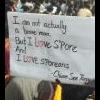Search the Community
Showing results for tags 'philippines'.
-
https://asia.nikkei.com/Politics/Philippine-elections-2022/Who-will-succeed-Duterte-Five-presidential-contenders-to-know?utm_campaign=GL_asia_daily&utm_medium=email&utm_source=NA_newsletter&utm_content=article_link&del_type=1&pub_date=20211011190000&seq_num=14&si=44594 Who will succeed Duterte? Five presidential contenders to know Ex-cop, dictator's son, mayor, boxer and VP in running for top job in Philippines Five of the runners for the Philippine presidency, from left to right: Ronald "Bato" dela Rosa, Ferdinand "Bongbong" Marcos Jr., Francisco "Isko Moreno" Domagoso, Emmanuel "Manny" Pacquiao, and Maria Leonor "Leni" Robredo. (Source photos by AP, Reuters and EPA/Jiji) CLIFF VENZON, Nikkei staff writerOctober 11, 2021 17:47 JST MANILA -- The Philippines kicked off its election season last week with the registration of candidates for next May's polls. Over 18,000 positions are to be contested, but all eyes are on the presidential race. Some 97 people have registered their candidacies for the top role, but the election commission still has to screen hopefuls and release an official list. The public's favorite in opinion polls is Davao Mayor Sara Duterte, the daughter of the president Rodrigo Duterte. While Sara missed Friday's filing deadline, saying she would seek a third term as mayor, candidate substitutions are permitted until Nov. 15 and her supporters hope for a change of heart. Among those who have filed are Duterte's former police chief, the son of a late dictator, the mayor of Manila, a boxing champion, and the current vice president. Here are five of the registered contenders that you need to know (listed in alphabetical order of surname): Ronald "Bato" dela Rosa Polling: Not included in a Pulse Asia survey conducted Sept 6 to 11 that asked respondents who they would vote for as president. The 59-year-old senator is a former national police chief who led the early years of Duterte's drug war. He is the candidate of the ruling PDP-Laban party. His candidacy, registered just hours before Friday's deadline, was a surprise to many and has fueled speculation that he will be a placeholder for Sara Duterte should she decide to run. Dela Rosa, who served as police officer in Duterte's home patch of Davao, has denied such a suggestion. He said his candidacy had been considered by the party long before registration and hiding it from the public was just a strategy. "I am fielded by my political party PDP-Laban for reasons that they have not found anyone else who will continue the legacy of President Duterte, our fight against drugs and criminality, corruption, terrorism, and our economic recovery amid the pandemic," dela Rosa said on Friday. His vice presidential running mate is fellow first-time senator, Bong Go, Duterte's long-time aide. Ferdinand "Bongbong" Marcos Jr. Polling: Second in the Pulse Asia survey with 15%, behind leader Sara Duterte's 20% The 64-year-old son and namesake of the late dictator has launched a bid to return his family to power. His father, who ruled the country for two decades, was overthrown in the 1986 "People Power" revolution, forcing the family into exile in Hawaii. The Marcoses has since rebuilt their political fortunes, even as widespread human rights abuses and corruption during the dictatorship continue to hound them. The Oxford-educated Marcos Jr. has been a provincial governor, congressman and senator. He lost the 2016 vice presidential race to Leni Robredo by a slim margin. A Duterte supporter, Marcos Jr. said his party had wanted to adopt the president as its vice presidential candidate until he announced his retirement from politics on Oct. 2. "I will bring that form of unifying leadership back to our country," Marcos said when he declared his candidacy last week. Francisco "Isko Moreno" Domagoso Polling: Third with 13% The 46-year-old mayor of Manila styles himself as a centrist in a country still deeply divided following the election of Duterte in 2016. "I will be a healing president," Moreno said last month when he declared his bid. He is expected to capitalize on his humble beginnings, handsome looks, as well as the clean-up and infrastructure projects in the capital since entering office in 2019. "I don't belong to a large clan. I am neither a son nor a daughter of a president," he said last month in a dig at some of his rivals who are backed by political dynasties. Moreno is a former actor who was discovered by a talent scout while attending a funeral in 1993. A son of a stevedore and housewife, he grew up in the slums of Manila, where he "salvaged in restaurant garbage bins for leftovers which were repurposed by his practical mother into the family dinner," according to his official profile. As a young boy, he collected newspapers and glass bottles and sold them to junk dealers. Moreno is running with Dr. Willie Ong, a physician with 16 million followers on Facebook. Emmanuel "Manny" Pacquiao Polling: Fourth with 12% The 42-year-old boxing star hung up his gloves last month to focus on his presidential campaign. The incumbent senator recently had a fallout with President Duterte amid infighting in the ruling PDP Laban party. Pacquiao has criticized graft in the Duterte administration and warned that corrupt government officials will be jailed if he becomes president. Pacquiao is banking on his rags-to-riches life story that has inspired many and propelled his political career. "The Manny Pacquiao in front of you has been moulded by poverty," he said last month when he declared his bid. Born in Mindanao, the country's southern island and Duterte's home region, he started boxing at the age of 16 and went on to build a career with world titles in eight different weight divisions. His national hero status as a boxer, however, has yet to extend to his political career. He has been criticized as an absentee lawmaker with unimpressive legislative record. Maria Leonor "Leni" Robredo Polling: Sixth with 8% The 56-year-old incumbent vice president has clashed with Duterte on issues such as his bloody drug war and pro-China foreign policies. A former human rights lawyer, Robredo entered politics a year after the death of her husband Jesse, a good governance champion. She beat an opponent from an influential political dynasty in a congressional race. Robredo won the 2016 vice presidential race on a campaign to uplift the lives of the marginalized, but the political machinery of the former ruling Liberal Party was an advantage that she now lacks. She has been praised for her pandemic response program, which has relied on donations due to the meager budget allocated to her office. While serving as chair of the Liberal party, Robredo is running as an independent candidate. Her running mate is Sen. Francis Pangilinan, an advocate for the agriculture sector and husband of actress Sharon Cuneta. Ella Hermonio contributed to this report.
- 21 replies
-
- 1
-

-
- election
- philippines
-
(and 1 more)
Tagged with:
-
https://asia.nikkei.com/Spotlight/Asia-Insight/Duterte-s-legacy-on-the-line-as-Philippine-elections-loom?utm_campaign=GL_asia_daily&utm_medium=email&utm_source=NA_newsletter&utm_content=article_link&del_type=1&pub_date=20210928190000&seq_num=2&si=44594 Duterte's legacy on the line as Philippine elections loom Drug war, infrastructure, China pivot define his presidency CLIFF VENZON, Nikkei staff writerSeptember 28, 2021 06:00 JST MANILA -- At the U.N. General Assembly on Sept. 22, Philippine President Rodrigo Duterte talked about his war on drugs but without indulging in his usual combative "kill 'em all" rhetoric. "I have instructed the Department of Justice and the Philippine National Police to review the conduct of our campaign against illegal drugs," Duterte said in a recorded message. "Those found to have acted beyond bounds during operations shall be made accountable before our laws." Duterte's war on drugs has killed over 6,000 mostly petty suspects, according to official data -- a fraction of the estimates from other informed quarters. The bloodshed has been attracting global attention since it began in 2016, and more recently an International Criminal Court (ICC) probe. The 76-year-old Duterte's uncharacteristically measured words are a sign that he is looking to his legacy as he wraps up his six-year term in office. Candidacies for the May 2022 elections -- from president down to municipal council members -- must be filed in the first week of October. The electioneering is already heating up -- and the Duterte name looms large in it. The president may be constitutionally barred from standing for a second term, but he plans to be on the ballot paper for the vice presidency instead. Candidates to succeed him include disenchanted ex-allies, while speculation swirls that his daughter Sara may also run -- despite her denials. Election campaigns will now preoccupy politicians and may put pending legislative reforms -- including economic liberalization measures -- on the back burner. At least four members of Duterte's cabinet -- including the transport and public works ministers -- may run for the senate. If they do, election rules require they quit their posts upon filing their candidacies. Political drama: Manny Pacquiao, left, and Isko Moreno, right, have already announced their runs for the presidency but Sara Duterte -- the most favored potential candidate -- has said she is "not running for a national position." Her supporters, however, expect her to step up at the eleventh hour. (Source photos by AP, EPA/Jiji and Getty Images) Attention should shift to Duterte's possible successors. Contenders include boxing icon Sen. Manny Pacquiao and Isko Moreno, the popular mayor of Manila. Both were once supporters of Duterte, but are now eager to expose the president's failings, be it his pandemic response or his disruptive succession plans. The stakes are high for Duterte. He has opted to run for vice president in an attempt to circumvent the six-year constitutional term limit. The constitution was changed in 1987 to prohibit two-term presidencies after President Ferdinand Marcos was deposed. He had remained in power for over two decades, latterly ruling as a dictator through martial law. Duterte's bid for a further term in office might stem from his concerns over retribution. The two presidents preceding Duterte both jailed their predecessors, and Duterte claims the vice presidency will shield him from legal action. Sara Duterte, the president's daughter and mayor of Davao City, his old stamping ground, has topped opinion polls to be his successor -- but continues to deny any plans for a presidential bid. Philippine presidents and vice presidents are elected separately. The mayor of Davao has yet to throw her lot in with her father publicly, and for now is keeping her distance. She has slammed her father's divided PDP-Laban party, and stated that only one Duterte at a time should run for a national post. The outcome of the 2022 elections is still some way off, but it will clearly affect Duterte's legacy and political fate. His bloody drug war -- which he unambiguously telegraphed before taking office -- is considered a human rights abomination abroad but has enjoyed wide domestic support. It will almost certainly go down in history as the signature policy of the Duterte presidency. Judges at the ICC on Sept. 15 finally authorized a formal investigation into possible crimes against humanity in the president's war on drugs. The ICC complaint estimated a far higher death toll -- between 12,000 and 30,000 -- than the official tally. On Sept. 21, over 1,000 people staged a protest against Duterte's human rights record and other issues. It was the 49th anniversary of the declaration of martial law by Marcos, with whom some compare Duterte. The late dictator's namesake son is also considering a presidential bid for 2022. Over a thousand people protested against President Rodrigo Duterte's human rights record and other issues on Sept. 21, the 49th anniversary of the declaration of martial law by Ferdinand Marcos, the former president who turned dictator. (Photo by Jilson Tiu) "If the opposition takes power, then they will likely use the ICC investigation to hammer home the negative aspects of Duterte's anti-drugs war, whereas a pro-Duterte successor would be more likely to downplay or dismiss the ICC investigation," Peter Mumford, an analyst at Eurasia Group, told Nikkei Asia. The ICC probe extends to 2011 and Duterte's tenure as mayor of Davao, where a similar campaign of killings were carried out by vigilantes dubbed the Davao Death Squad. Duterte's aides have downplayed the probe and insist the court at The Hague in the Netherlands has no jurisdiction since Manila officially withdrew from the Rome Statute of the ICC in 2019. They maintain the Philippine justice system works, even though only one case -- that of 17-year-old Kian Delos Santos -- led to the conviction of three police officers. There is a video showing the schoolboy being dragged off by policemen, and he was later shot in the head. Oblivious to international opinion, Filipinos appear from opinion polls to support Duterte's war on drugs overwhelmingly -- even though few apparently believe the victims offered resistance, as the police usually claim. Duterte has argued that peace and order precede progress, and his harsh approach has won him high approval. "In terms of public perception, a lot of people feel that drug dealers and addicts on the street are less visible," said Gregory Wyatt, the director for business intelligence at PSA Philippines Consultancy. Whether that perception helped businesses in any way remains a question. After peaking at $10.3 billion in 2017, annual foreign direct investment has continued to decline. Pre-pandemic figures in 2019 were about $8.7 billion, matching 2016 levels. The war on drugs damaged the Philippines' international reputation, a foreign businessperson in Manila told Nikkei. "Human rights issues enter into corporate decisions -- the rhetoric also matters," he said. Duterte signed an anti-terrorism law last year, which critics claim is in fact intended to muzzle opposition. The climate of fear has also been raised by the killings of dozens of human rights activists and lawyers. Duterte taunted local tycoons and forced them to concede. In 2019, he threatened to jail and "rough up" some businessmen over a water contract dispute. ABS-CBN, the largest TV network, was forced to close last year after its owners fell foul of the president. The network was also shut down in the Marcos years. In March, Duterte said that one thing he will take to the grave was being able to "dismantle the oligarchs holding the government." Duterte launched an anti-graft campaign by firing officials accused of corruption, but some were in fact merely transferred to other posts. His aggressive infrastructure push, branded Build, Build, Build, was worth over $160 billion. It won plaudits for helping maintain economic growth above 6% before the COVID-19 pandemic struck. State infrastructure spending relative to GDP has nearly doubled on Duterte's watch, boosting growth and jobs. "Some education facilities and transport links including roads and airports have seen significant improvement, which will help the Philippines narrow the perennial gap it endures between its potential and actual GDP growth," said Katrina Ell, a senior economist at Moody's Analytics. The first tunnel boring machine for the Japan-backed Metro Manila Subway Project arrived in February, but construction has yet to begin. (Photo courtesy of Department of Transportation of the Philippines) But delays have hit some of the mammoth infrastructure projects that headlined Build, Build, Build. The 357 billion peso ($7 billion) Metro Manila Subway has yet to begin construction even though tunnel boring equipment arrived early this year. Vince Dizon, the president's infrastructure adviser, said 40 of 119 major projects will be completed next year. Duterte's COVID-19 pandemic response has stained his economic legacy. The president relied on retired generals who enforced prolonged lockdowns that shrank the economy by 9.6% in 2020 -- the worst result in Southeast Asia. "We forecast the Philippines to return to pre-pandemic levels of output in the final quarter of 2022, making it the laggard in Asia," Ell said. Less than a fifth of Filipinos have been vaccinated as the country battles its third wave of infections. Early this month, Duterte drew the ire of business owners and workers alike for delaying the easing of lockdown by a further week. "I would not want to be remembered as one who caused the death of so many," the president said, with no hint of irony. Duterte's foreign policy pivots have sent shockwaves around the globe. On his first visit to Beijing in October 2016, he met President Xi Jinping and announced his "separation" from the U.S. during a meeting with Chinese businesspeople. Duterte set aside Manila's arbitration victory at The Hague against Beijing over the South China Sea territorial dispute. And on his watch, the implementation of the Enhanced Defense Cooperation Agreement that allows U.S. forces to operate in the Philippines for extended periods was stalled. Duterte's biggest threat to the U.S. alliance was in February last year when he moved to terminate the Visiting Forces Agreement, which eases the entry of U.S. forces into the Philippines and operationalizes the 1951 Mutual Defense Treaty. Duterte retracted the abrogation in July and thanked the U.S. for donating vaccines. "We have pursued an independent foreign policy for the first time in the history of the republic and done well by it, earning a heightened respect from the community of nations," Foreign Affairs Secretary Teodoro Locsin Jr. said in a congressional budget hearing in August. "If we had been a tail, we are now wagging the dog." Former Foreign Affairs Secretary Albert Del Rosario sees things rather differently, and calls Duterte's acquiescence to China a "national tragedy." Eurasia's Mumford views Duterte's foreign policy forays as "largely unsuccessful." China pledged billions of dollars worth of infrastructure investments, but it has so far completed one project -- a bridge crossing Manila's Pasig River. "Meanwhile, China was able to expand its presence in the South China Sea and, critically, Duterte's pro-Beijing approach shifted the balance of views within ASEAN toward China," said Mumford. Whether an ally or an enemy, Duterte's successor will inherit a very mixed legacy and the policy dilemmas that come with it. Moody's Ell has warned of deepening social inequality due to the pandemic and lockdown measures. "It will take time along with targeted and effective government policies for that gap to narrow," Ell said. "Chronic inequality will be a lasting scar of the pandemic if not addressed." Managing foreign policy will have consequences on the economy. "If the Philippines wants to be more assertive in the dispute with China in the South China Sea, China is going to ramp up the economic pressure, just like they did in the [Benigno] Aquino years," said Wyatt of PSA, the consultancy. "In terms of the drug war, I think the biggest challenge is what to do with its legacy," Wyatt said. "Filipino society might not be ready for a true reckoning of what was done during the drug war, but might slowly move towards anti-drug operations that are led by investigations, and not violence."
- 3 replies
-
- 1
-

-
- philippines
- duterte
-
(and 1 more)
Tagged with:
-
https://asia.nikkei.com/Business/Agriculture/Philippines-stirs-controversy-with-genetically-modified-rice?utm_campaign=GL_asia_daily&utm_medium=email&utm_source=NA_newsletter&utm_content=article_link&del_type=1&pub_date=20210927190000&seq_num=23&si=44594 Philippines stirs controversy with genetically modified rice Critics take aim at nutrient-enriched Golden Rice, but government says it is safe The Philippines is the first country to green light commercial production of genetically modified Golden Rice, right. © Reuters MICHAEL BELTRAN, Contributing writerSeptember 27, 2021 17:00 JST MANILA -- The Philippines has become the first country to approve the commercial production of genetically modified, nutrient-enriched Golden Rice, sparking safety worries even as the government tries to fight malnutrition and shore up supplies in one of the world's top importers of the staple grain. Golden Rice was developed by the International Rice Research Institute (IRRI), headquartered in Laguna, south of Manila, to help curb vitamin A deficiency in developing nations. It is named for the yellow color of the grain. Pilot planting began in the Philippines in 2013, overseen by the Department of Agriculture and its attached agency, the Philippine Rice Research Institute (PhilRice). When formal biosafety approval was granted last July, the agriculture department said Golden Rice was a landmark for nutrition in the country, with planting expected in some provinces during the 2022 wet cropping season. Around 1 in 5 children from the poorest communities in the Philippines suffer from vitamin A deficiency, according to IRRI. Golden Rice is also undergoing a final review by regulators in Bangladesh. Vitamin A keeps the skin and eyes healthy, and a deficiency can cause problems such as difficulty seeing in dim light. But the move by the Philippines has drawn a wave of criticism amid festering global worries over the safety of genetically modified organisms, or GMOs. "Golden Rice will poison our lands," said Melanie Guavez, a rice farmer from Camarines Sur, the southeastern tip of Luzon, where Manila is located, who also leads anti-GMO alliance SIKWAL-GMO. Her home province was the site of pilot planting back in 2013. In August that year, Guavez and hundreds of other farmers uprooted the crops in protest before the harvest could be evaluated by authorities. "The government doesn't inform any of us about the negative effects that Golden Rice can have on our lands and livelihood," said Guavez. "They try to trick us with Band-Aid solutions and half-truths. They say that they'll help us with our pesticides, seeds, etc, but they are trying to get rid of traditional planting methods." Dr. Rey Ordonio, Golden Rice project leader at PhilRice, told Nikkei Asia that "we are simply providing Golden Rice as another inbred variety that farmers can choose to plant. Golden Rice has been developed for humanitarian purposes and we deliberately developed it as an inbred just like conventional rice varieties to ensure it will be affordable and accessible to farmers and consumers." Such purebred rice varieties still represent most of the genetic variety of rice commonly grown in the Philippines. Ordonio assured consumers that Golden Rice is completely safe. He based that on a 2016 report from the National Academies of Science, Engineering and Medicine in the U.S., which surveyed almost 900 studies and publications attesting that genetically modified crops are not dangerous. Golden Rice seedlings are planted at a laboratory south of Manila in 2013. © Reuters Guavez said that growing Golden Rice requires an overreliance on pesticides and herbicides that ordinary farmers cannot afford. She said the whole initiative will plunge farmers into debt. In order to pay off their mounting loans, she fears that indebted farmers will sell their land to big corporations that hover like vultures over anyone willing to let go of their property. Guavez fears that over time, the Bicol region's agricultural areas will be more vulnerable to corporate takeovers. "Big business will benefit from this, not us," she said. "We are trying to protect our local seeds and our lands. Why do we need something cooked up in a laboratory? The government should support local initiatives instead." Giovanni Tapang is the dean of the University of the Philippines College of Science and the chairman of Advocates of Science and Technology for the People (AGHAM). He took aim at the biotech industry. "Farm inputs are under the development and control of agrochemical multinationals. The claims of the agricultural biotech industry that only their products are needed to feed the world ignore the realities that the majority of our farmers are in. Land is concentrated in the hands of a few landlord families, while most farmers are landless or lack land to sustain their families." Cathy Estavillo, of Amihan, a national organization of farm laborers and a member of the Stop Golden Rice Coalition, also pointed the finger at multinational companies. She says the introduction of Golden Rice in the country means the Philippine government has strengthened its adherence to neoliberal globalization, which does not bode well for farmers. Moreover, she said, conglomerates have backed GMO rice development for years in a bid to benefit from their production and markets. The Bill and Melinda Gates Foundation has donated millions of dollars over the years to IRRI for rice research. The tech billionaire is also a frequent donor to foundations set up by the agrochemical giant Syngenta. Some of his business startups also have partnerships with the company. Syngenta, along with several other corporations, owns a patented license to the technology needed for Golden Rice. Estavillo claims the entire premise of addressing vitamin A deficiency is a smoke screen thrown up by corporate proponents who want to make money off a new product. Estavillo added that even the underlying premise of Golden Rice is flawed. "You would need to eat around 4 kilos of Golden Rice to meet daily vitamin A requirements. Why not subsidize the production and delivery of other local vegetables instead? The reason is, GMO crops are a cash cow and the Philippine government is brokering this deal to those who stand to profit." She was citing a study made by Madeleine Love, an Australia-based independent researcher who claimed that 4 kg of Golden Rice and one carrot have about the same vitamin A content. However, Ordonio insists the project fits perfectly with lifestyles in the country. "Rice is a staple food among Filipinos. It is already a good source of carbohydrates but lacks other nutrients. It is important to note that Golden Rice is intended to be a complementary source of beta carotene in the diet." Beta carotene is converted to vitamin A in the body. But Estavillo believes Golden Rice won't be a hit in the Filipino market. She witnessed handouts of free Golden Rice samples from the government back in 2015 and said children were put off by the yellowish color. Amihan is currently working with congressional lawmakers and officials in several provinces to impose a resolution or injunction against the cultivation of Golden Rice. Meanwhile, farmer Guavez wants the state to support local and organic farming methods and workers. "Since the pilot testing in 2013, there has been no consistent help from the Department of Agriculture for Golden Rice. It's a scam designed to rid us of our lands and work. We have fended for ourselves for as long as we can remember and even with this implementation of a new strain, we will continue to do the same." She said farmer groups from her region are planning a protest caravan, filing into vehicles to hold demonstrations in other provinces and calling for the uprooting of Golden Rice crops.
-
https://asia.nikkei.com/Spotlight/Asia-Insight/Indonesia-and-Philippines-face-persistent-anti-vax-hurdle?utm_campaign=GL_asia_daily&utm_medium=email&utm_source=NA_newsletter&utm_content=article_link&del_type=1&pub_date=20210914190000&seq_num=17&si=44594 Indonesia and Philippines face persistent anti-vax hurdle Asian hesitancy weighs as inoculation drives make progress AKANE OKUTSU, CLIFF VENZON and ERWIDA MAULIA, Nikkei staff writersSeptember 14, 2021 06:00 JST TOKYO/MANILA/JAKARTA -- The number of people in Asia getting vaccinated against COVID-19 has been rising. But further progress in battling the pandemic could be slowed by the continuing appearance of social media hoaxes and disinformation that make it harder to combat hesitancy. Some of the uglier postings have been in Indonesia, which says it has found and had taken down 2,000 vaccine-related hoaxes on social media platforms. One posting in July showed five coffins in a mosque, with a deliberately-wrong caption saying they contained residents of one house who just got vaccinated. In an earlier hoax, an Indonesian TV report quoting a scientist was manipulated so captions had him saying "our people will be killed by Chinese vaccines" and that jabs "make the virus more savage" -- which was completely different from what he was saying. Before Facebook took it down, the post received 11,000 "likes" and was shared 182,000 times. Last month in the Philippines, the Health Department debunked a video -- which went viral on Facebook -- by a "Doc Ron" who asserted that Pfizer's COVID-19 vaccine contains HIV particles. That too was taken down. Japan too has been hit by misleading social media posts. In the first seven months of 2021, as many as 110,000 Twitter posts that were retweeted at least once suggested that getting vaccinated leads to infertility, Nikkei's research found. A health worker tends to a coronavirus disease (COVID-19) patient in the chapel of Quezon City General Hospital turned into a COVID-19 ward amid rising infections, in Quezon City, Metro Manila on Aug. 20. © Reuters In many Asian countries, governments and experts are trying to find ways to communicate more effectively with the public and -- where there are anti-vax efforts -- to knock them down. There have been some improvements, but it's proving difficult to crush vaccine hesitancy. This is part of the reason there's a long way to go to get vaccination levels high enough to resume most normal activities and travel. A 31-year-old mother of one in Japan's Kanagawa Prefecture, south of Tokyo, is an example of the hesitancy that the government has not been able to eradicate. She and her husband are aware that the health ministry and other public institutions insist there is no evidence that getting vaccinated is harmful for pregnant women. Still, the woman -- who is not pregnant -- refuses to get COVID-19 shots. "Because we want a second child, my husband and I decided we would not get vaccinated," she said. In her view, the vaccines were "just developed, and I am worried that something might happen in a few years, even if there was no [worrying side-effect] for now." Many younger people in Japan are yet to take the vaccines. Based on its research in Tokyo and surrounding areas in July, a government expert committee found that only 45% of people in their 20s and 30s were either already vaccinated or wanted to be, compared with 60% for those in their 40s and 50s. According to the committee, it is ideal to vaccinate 75% of the younger group, and 80% for the older one. Japan, which just rolled out its vaccination program this year, had fully vaccinated half of its population. It has done well with seniors, fully vaccinating about 88%. Government leaders and experts have been desperately trying to convince the still reluctant, especially among Japan's young. "There are false rumors that the COVID-19 vaccine makes people infertile, but various institutions around the world are saying that [rumor] is totally not true," Taro Kono, a minister who's in charge of the vaccination program, told a major youth fashion event, Tokyo Girls Collection, on Sept. 4. "I hope you will take [the vaccines] with no such fear," he said. His tweet about TGC was liked 20,000 times. All parts of the world have varying degrees of vaccine hesitancy, and some have found that the percentage of a nation's people vaccinated starts to plateau after reaching 50% to 70%. As of early September, about 40% of people in the U.S. haven't had any jabs, according to Our World in Data. About 30% still have not been vaccinated in the UK and Israel. In the Philippines, where 15.4% were fully vaccinated as of Sept. 12, a survey by Pulse Asia in June showed that 43% of respondents said they wanted to be vaccinated, 36% said they didn't, and the rest were undecided or had been vaccinated. This was an improvement from a February poll, which showed only 16% willing to be vaccinated while 61% were not. Sometimes, minds do change. "Before, I didn't want to be vaccinated, because of news that some people died after being vaccinated," Kathlyn Marcos, a 31-year-old Manila cashier, told Nikkei Asia after receiving her first shot of Sinovac. She was the last to be vaccinated in her family, which eventually convinced her to get it. A medical worker injects a dose of COVID-19 vaccine in Indonesia on Sept. 6. A survey found 60% of respondents either "less willing" or "very unwilling" to get a jab. © Getty Images In Indonesia, 15.4% of the population was fully vaccinated by Sept. 12. Factors slowing progress include some delays in delivery and distribution of the vaccines, but there's also coolness to vaccinations. A survey released by Jakarta-based pollster Indikator Politik Indonesia on Aug. 25 found 60% of respondents were either "less willing" or "very unwilling" to get a jab, half of whom cited worry about unknown side-effects. Disinformation about vaccines is not new, according to Shinichi Yamaguchi, an associate professor at International University of Japan who researches social media and fake news. Vaccination involves technical knowledge, causing some people to feel anxious because of their lack of understanding. And drivers of fake news being shared are anger or anxiety, according to Yamaguchi. "Anyone can be fooled, regardless of age or gender," he told Nikkei Asia. Countering fake news is a challenge for the government, especially when political confidence is low. Amid Japan's recent surge of COVD-19 new cases, support for Prime Minister Yoshihide Suga's government dropped to the 30% range in July for the first time since its inauguration in September 2020. (Suga later announced he will not seek reelection in ruling Liberal Democratic Party's presidential election on Sept. 29.) Lack of trust in the government creates a breeding ground for conspiracy theories and fake news, said Yamaguchi, adding "Unless there's trust in the government, the vaccination rate will not become high." According to research published in the medical journal Lancet in 2020, Japan in 2018 was among the countries with the lowest vaccine confidence in the world even before the pandemic. Another survey by Imperial College London as of August also shows Japan is lagging behind the U.K. and the U.S. in building strong trust in COVID-19 vaccines. Japan has had some bitter experiences with vaccines and drugs. One major setback was when the government lost when defending against lawsuits that made side-effect claims for measles, mumps and rubella (MMR) vaccines. As a result, Japan stopped requiring MMR vaccines in 1993 and made such vaccinations non-mandatory in 1994. Since 1994, attitudes of the health ministry toward vaccines "have always been passive," said Akihiko Saitoh, a professor of pediatric medicine at Niigata University. Vaccination is now an individual choice, and "the power of the government recommendation is not as [strong] as in the US," he said. Also, the Japanese government has been sued by more than 100 recipients of human papillomavirus (HPV) vaccines against cervical cancer, which are widely used globally. The class-action case, filed in 2016, remains in court. Women in face masks walk in the famous Shibuya crossing in Tokyo. Many young people in Japan are yet to get vaccinated against COVID-19 . (Photo by Ken Kobayashi) Kensuke Yoshimura, president of an educational project called Cov-Navi that provides information to the public on COVID-19 vaccines, said Japan's vaccine policies "had repeated failures, especially for communication," and that the HPV vaccines scare indicated "the ultimate example of failure." Indonesia, the country with the largest Muslim population, historically has seen some resistance to medicines on the basis they were not certified as halal, or acceptable for Muslims. In August 2018, the Indonesian Ulema Council (MUI) issued a fatwa (edict) saying that the MMR vaccine was "forbidden" because of the use of pork or derivatives in its production, but that the use of the vaccine itself was "permissible" because of Islamic law's leniency in emergency situations. For COVID-19, the government involved MUI from the beginning in its vaccination drive. In January, the council declared Sinovac, which was the first vaccine used and accounts for the bulk of doses administered in Indonesia so far, as halal. Indikator Politik said that in its poll, 4% of respondents said they either didn't believe or were unsure if government-provided vaccines were halal. Indonesia's Communications Ministry, in addition to finding and getting social media platforms to take down hoaxes, has been fact checking against problematic contents and publishing counternarratives regularly on its website. In May, it launched a national digital literacy program to educate the public not to easily trust information spreading on the internet. In the Philippines, unfounded allegations that a dengue vaccine caused the death of children grabbed headlines a few years ago, fueling skepticism on vaccines for a time. Another issue in the Philippines for COVID-19 is higher trust in Western-made vaccines than Chinese ones which dominate the country's supply. The bias forced the government in May to stop announcing in advance the brands that will be administered in vaccination centers. Philippine President Rodrigo Duterte holds a vial of Sinovac Biotech's CoronaVac in February. © Reuters Confidence in COVID-19 vaccines improved after a government's information campaign on vaccine effectiveness regardless of the brand. Doctors received Sinovac jabs on national TV, while President Rodrigo Duterte's inoculation with a jab of China-made Sinopharm vaccine was also publicized. (Duterte has threatened to jail people who didn't get vaccinated, but it hasn't happened.) For Yoshimura of the Cov-Navi project in Japan, the key to battling COVID-19 is getting people accurate, easy-to-understand information. Yoshimura, who is also a professor at Chiba University Hospital, launched the project with other experts to educate the medical workers and Japan's general public, communicating information backed by peer-reviewed academic reports and public institutions. He added that efforts must be made to educate youths in their teens, or even younger and their parents. Vaccine hesitancy is not the sole obstacle to accelerate inoculation drive. There is still more to be done about making vaccines available for those who are wanting to get one. In Japan, vaccination at some universities and companies was put on hold due to lack of supply. A new vaccination site set up for young people under 39 years old at the end of August in Tokyo's Shibuya district was overcrowded on its first day, before the site started to accept online bookings. Vaccines are believed to be effective for preventing severe symptoms that require extra care in hospitals. "No matter how much the number of beds increases and capacity expands, the main plug must be closed," said Cov-Navi's Yoshimura. Combined with social distancing and border control, "vaccination would be the most effective" measure for fighting COVID-19, he said.
-
https://www.straitstimes.com/asia/voters-approve-muslim-self-rule-in-philippines-troubled-south MANILA • Voters have decisively approved a new Muslim-led region in the Philippines' south, which is hoped will bring a measure of peace after decades of fighting killed thousands and mired the area in poverty. The results, announced yesterday, will begin the process of the Catholic-majority nation's largest rebel group, the Moro Islamic Liberation Front (MILF), laying down its weapons and assuming political power. About 150,000 people were killed in the rebellion that began in 1970s and aimed to push the government to grant independence to a Muslim minority concentrated on the southern island of Mindanao. As part of the peace process, the MILF has joined the government in battling the hardline factions aligned to terror group Islamic State in Iraq and Syria (ISIS) waging guerilla campaigns in the southern Philippines. President Rodrigo Duterte, himself from Mindanao, has been a staunch supporter of Bangsamoro and signed the law last year paving the way for the vote. Under the terms of the law which lays out the region's powers, Bangsamoro will get US$950 million (S$1.29 billion) in development funds over the next 10 years, as well as a chunk of the tax revenue generated within its borders and national receipts. Manila will keep control over the police, but it is hoped that close cooperation on security with Bangsamoro's leaders will help get a handle on the region's endemic lawlessness. Muslim rebels have long been battling for independence or autonomy on Mindanao, which they regard as their ancestral homeland dating back to when Arab traders arrived there in the 13th century. The Bangsamoro region will expand and supersede an existing Muslim-led region which struggled to govern effectively due to limited powers and was hamstrung by alleged corruption. After voters' approval, the rebels are to immediately demobilise a third of their fighters, which the group said number about 30,000. MILF has begun an inventory of its weapons, which will not be destroyed but rather placed in a depot guarded by former MILF fighters and government security forces. Laying down their guns may prove to be a delicate process for rebels living in a region with extremely limited rule of law, where being armed is also a way to protect oneself and family from crime. Transitioning from rebellion to governance also promises to carry challenges for rebels who have limited experience in the difficulties of politics and bureaucracy. AGENCE FRANCE-PRESSE
- 4 replies
-
- general affairs
- philippines
-
(and 7 more)
Tagged with:
-
Fight fight fight
- 38 replies
-
- 5
-

-
- australia worldcup
- fiba
-
(and 3 more)
Tagged with:
-
Watch Vaune Phan on CNA, for those who like her. https://www.channelnewsasia.com/news/video-on-demand/this-weekend/biking-in-mindoro-philippines-10256760?cid=vaune
- 19 replies
-
- 1
-

-
MANILA - The resort island of Boracay will be closed to tourists for six months from April 26 to fix sewage and environment-related problems that have led President Rodrigo Duterte to describe it as a "cesspool". Mr Duterte approved the recommendation by three government agencies to shut down Boracay, his spokesman Harry Roque told reporters late on Wednesday (April 4). The go-ahead was given despite pleas to carry out the shutdown in phases and to limit its scope. http://www.straitstimes.com/asia/se-asia/philippines-to-close-boracay-to-tourists-for-six-months-from-april-26 Take note for those who are planning your vacations! Time to go Maldives then.
- 12 replies
-
- 3
-

-

-
- boracay
- philippines
-
(and 3 more)
Tagged with:
-
Scientist most feared have arrived, The Super Typhoon of wind speed of more than 300km/hr .... Hitting Philippines today with deadly forces of nature ... from Yahoo: One of most intense typhoons ever recorded hits Philippines One of the most intense typhoons ever recorded tore into the Philippines on Friday, triggering flash floods and ripping down buildings as millions of people huddled indoors. Super Typhoon Haiyan smashed into fishing communities on the central island of Samar, about 600 kilometres southeast of Manila, before dawn on Friday with maximum sustained winds of 315 kilometres (195 miles) an hour. The strength of the wind made it one of the four most powerful typhoons ever recorded in the world, and the most powerful to have made landfall, according to Jeff Masters, the director of meteorology at US-based Weather Underground. Masters said he expected the damage in Guiuan, the fishing town of about 40,000 people that was the first to be hit after Haiyan swept in from the Pacific Ocean, to be "catastrophic". "Perhaps the greatest wind damage any city on Earth has endured from a tropical cyclone in the past century," Masters wrote on his blog for the weather monitoring website at www.wunderground.com. Communication with Guiuan was cut off immediately after Haiyan hit, and the civil defence office said it was too early to give an assessment of the damage there. But in Tacloban, a nearby city of more than 200,000 people, streets were flooded and some buildings were torn down, according to footage broadcast on ABS CBN television. Haiyan had maximum sustained winds on Friday morning of 315 kilometres an hour, and gusts of 379 kilometres an hour, according to the US Navy's Joint Typhoon Warning Centre. more stories, link : http://sg.news.yahoo.com/super-typhoon-haiyan-hits-philippines-230815112.html The storms are getting bigger and stronger...
- 75 replies
-
Hi all, I am going to philippines soon... anyone just back from philippines? How is the situation over there? the flooding affecting the city area???
-
ah ah ah.................lai liao another one.............lick boots call father............now detain workers..........what the dog going to do when owner shout............. http://www.businessinsider.com/philippines-detains-chinese-nationals-accused-of-running-gambling-op-2016-11?IR=T&r=US&IR=T BEIJING (Reuters) - China is concerned over the Philippines' detention of more than a thousand Chinese nationals during a crackdown on online gambling, the Foreign Ministry said on Monday, in what could be a strain for ties that have warmed in recent months. The Philippines immigration bureau last week detained about 1,200 Chinese people working in call center-like facilities suspected of running online gambling operations out of a former U.S. air base, Clark Field. The detentions marked the government's biggest such round-up of Chinese nationals in the country, many thought to be working there illegally. Chinese Foreign Ministry spokesman Geng Shuang said China had requested that the Philippines "appropriately make arrangements" for those who had been detained and quickly release individuals who have "legal identification". "At the same time, China expresses concern over the large number of Chinese citizens detained by the Philippines," Geng told reporters at a regular press briefing, adding that China always reminds its citizens who travel abroad to abide by local laws. It is unclear if the Chinese nationals were being held for gambling offences or for visa and immigration violations, but about 900 were brought to the immigration detention center in Manila, according to a Philippine police report. Online gambling is not illegal in the Philippines, but it is subject to permitting and zoning regulations. China has expressed support for the Philippines' other law enforcement efforts, including President Rodrigo Duterte's anti-narcotics campaign, which has sparked criticism from Western countries over fears of extrajudicial killings. In contrast with the previous Philippine government's adversarial relationship with Beijing, Duterte has made efforts to improve ties with China, which have been plagued by territorial disputes in the South China Sea. Prior to leaving for an Asia-Pacific summit in Lima this month, Duterte said if Russia and China decided to create a "new order" in the world, he would be the first to join.
- 9 replies
-
- 1
-

-
- china
- philippines
-
(and 4 more)
Tagged with:
-
My maid need to send some money back home. Last time I brought her to Western Union. Rates were lousy and still charge $12 service fee. Is there a better and safter place to send? Those at Lucky Plaza? Tks
-
So it begins, our long awaited journey and our virgin visit to Philippines. This trip was realized in 2014 October. It Always wanted to see Boracay but was hold back by the inconvenient journey there. Alas, Tiger Airway announced that they fly everyone there since 2013 which made this trip a reality. Ticket bought! $260 per pax thereabout. Flight time about 3 hours 45 minutes. So we took off at about 9am from Changi Airport and touched down at Kalibo at about 1pm Singapore time. Best month to visit Boracay, end October till early April. ( To avoid the monsoon season ) The moment we landed, that was no air conditioned tunnel to get out of the plane to the terminal, we had to walk our way to the terminal under the lovey sun. So please wear lightly, this airport terminal may disappoint you deeply if you have too high expectation of it. The airport has only one runway for take off and landing, you could easily spot it before landing when the plane is making a big U-turn. Once you reach the immigration counter, the dimly lighted area, you got to queue up for the clearance, this is gonna take pretty long if you are the last few to queue up as they have only 1 to 2 counters serving the arrival guests. The aircon system in there is not the greatest and you may wanna wear lightly and also the ventilation of the terminal is pretty bad as the ceiling is considered very low for a terminal. So once you have your passport cleared and collected your bags, walk right out of the terminal and fear not, you will not miss the tour bus which will bring you to Caticlan ferry terminal. https://soulblogger.net/travel/how-to-get-to-boracay/
- 6 replies
-
- 3
-

-
- boracay
- howtogettoboracay
-
(and 2 more)
Tagged with:
-
will be there next month pls advise thx all
-
Hmmm how come our gahment so neow
-
for those who are interested in a little bit of history, and the reason of the conflict happening in Sabah now before 1917, there was this kingdom that ruled Sabah, Palawan and part of Mindanao (Philippines) http://en.wikipedia.org/wiki/Sultanate_of_Sulu the Sulu Sultanate was annexed by the British in 1917, and later in 1963, Sabah (together with Sarawak) became part of the Federation of Malaysia however, the descendants and followers of the kingdom are still claiming their territories and fighting for their ruling rights
- 702 replies
-
- Sabah
- Philippines
-
(and 1 more)
Tagged with:
-
after pissing off HK 3 years ago, the pinoys have decided to piss off TW this time anyway you dun fire more than 50 rounds if you are self defending yourself, against a fishing boat somemore this is already an aggression that can lead to war
-
SINGAPORE: The Philippines beat Singapore's Lions 1-0 in an international friendly match on Thursday. Singapore started strongly, dominating the match in the first half. But Shi Jiayi missed a chance to put the Lions ahead after fluffing his spot-kick. The Philippines scored the lone winner in the 55th minute, with Marvin Angeles slotting home to give the hosts a 1-0 win. - CNA/ir
- 63 replies
-
- Football
- Philippines
-
(and 1 more)
Tagged with:
-
I am staying in a Condo on the west of Singapore and my home is fast becoming a little Philippines .... So many units are rented to foreigners, I feel that I am like the minority. Spoke to the security and they were complaining about the foreigners .... and they still prefer the locals. I heard stories of them throwing empty beer bottles into the pool, pang sai on the urinals etc etc. Very very poor social behaviour. It seems better to stay in a HDB now ...... at least the rental is regulated/controlled. Thinking real hard about moving out ... and I am just wondering what it the situation with the other condos. Any feedback ?
-
hi all, as per above.. anyone who has good contacts in Philippines or capable of develop Philippines market as a master franchise? exclusive rights will be licenced for 10yrs. retail ladies brand with good margin. must know what Philippines market is all about. thanks.
-
China's navy has been harassing fishing boats of the other two countries around the disputed island in south china sea.... vietnam navy staged an exercise to show its muscle....Philippinos staged protest in front of China's embassy in Manila... all talks no fight? or one side will fire some shoots soon?? Vietnam was whacked hard by China in the 70s iirc.... will this be repeated?? never heard the philipinos can fight..... now things are changing?
-

Toyota Corolla Altis facelift in the Philippines and Indonesia
Rigval posted a blog entry in MyAutoBlog
It seems Indonesia and the Philippines are getting a sportier facelift for the Toyota Corolla Altis. After quietly debuting over in those countries in 2008, Toyota has now refreshed the exterior of the Altis with a new matt black lined grill/bumper arrangement, black-out lights and sportier looking alloy wheels. I suppose Toyota wants to get rid of that 'uncle' image its cars portray and maybe get the hip, youngish clientele that went for their Vios to come back for another Toyota when they get older. The fun thing about this Corolla Altis is that it now sports a power upgrade too. It now gets 120bhp and 154Nm from the 1.6liter 4cylinder engine instead of 107bhp and previously. The 2.0liter 4 cylinder also gets a boost in power; 145bhp over 135bhp. Too bad Toyota does not sell and market the 2.0liter over in Singapore and Malaysia (only a 1.8liter version above the 1.6liter version). It would be a fun car to drive, regardless of its frumpy 'unclemobile' image. Toyota credits a new induction system that allows more air into the combustion chamber which improves fuel consumption and power in the engines. The 2.0liter in the Philippines comes equipped with a CVT type transmission that comes with flappy pedals behind the steering. The 1.6liter over there comes with, get this, a 6 speed manual gearbox. Toyota is really making the Altis into a sportier creature. Sales in the Philippines begin in September of this year. And check out the fully tricked out version that was on display at the recent 2010 Indonesia International Motor Show below. Can we have these very sporty (compared to what we have) versions over here please? Source: motioncars/author's own- 3 comments
-
- Toyota
- Corolla Altis
-
(and 5 more)
Tagged with:
-
Hi, thinking of taking a holiday there.. is it worth it? I will be claiming my krisflyer miles, from Silkair. so air fare is FOC already Hotel charges? places to hang ard and see, shopping? food prices? how many days should i be there? I going with partner i read they have the best mangoes...... safety?
-
Any bros..here can recommends hotel or resort in Cebu? Will be there on March 16 to 19. Might be hopping over to Bohol Island for a day trip. And not forgetting the nightlife!!!


















